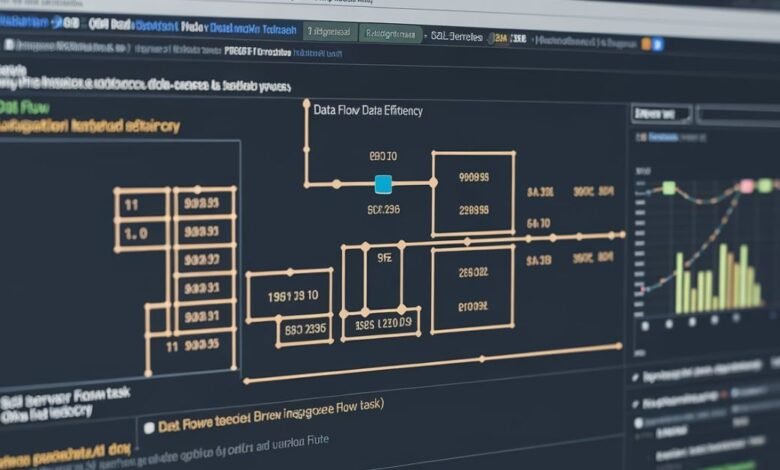Maximize Data Efficiency Using SSIS 858

Introduction
The SSIS 858 version of SQL Server Integration Services is a powerful tool designed for efficient data integration and transformation. This latest iteration of SSIS introduces new features that streamline the process of managing large data sets from multiple sources. With improved performance and enhanced automation capabilities, SSIS 858 is the ideal solution for businesses looking to optimize their data workflows. Whether you’re handling ETL tasks or complex data migrations, this version of SSIS simplifies the entire process.
Are you looking for a tool that handles your data integration seamlessly? With SSIS 858, you can manage data transformations effortlessly. Stay ahead of the game by mastering this advanced data integration system.
SSIS 858 brings key improvements in speed, flexibility, and scalability. The platform integrates various data sources, including SQL databases, flat files, and cloud-based systems. Its powerful automation tools reduce manual labor, while advanced logging ensures complete visibility into the data flow. For businesses needing to manage complex data environments, SSIS offers the solution by delivering robust integration with minimal downtime.
Streamline Data Integration with SSIS 858
With SSIS 858, data integration becomes more straightforward and efficient. The platform supports various data sources, allowing seamless extraction, transformation, and loading (ETL) processes. Whether you’re working with relational databases, cloud storage, or file systems, SSIS can handle it all. The updated user interface makes it easier to design and configure ETL workflows. It also offers templates and pre-built connectors, further reducing development time.
Improved Performance and Scalability
One of the standout features of SSIS 858 is its improved performance, especially when dealing with large data volumes. The platform leverages parallel processing and enhanced memory management to ensure faster data transfers. Additionally, SSIS scalability makes it suitable for growing businesses. As your data needs expand, the platform can scale alongside, ensuring that performance isn’t compromised even with increasing data loads.
Advanced Automation for Streamlined Workflows
Automation is a key component of SSIS 858, reducing the need for manual intervention. The platform offers advanced scheduling features that automate data flows at regular intervals or trigger-based processes. This capability ensures that data is updated and transferred consistently without constant supervision. By using SSIS’s built-in automation features, teams can focus on more critical tasks while minimizing human error in the data pipeline.
Enhanced Error Handling and Logging
Data integrity is crucial in any integration process, and SSIS 858 addresses this with enhanced error handling and logging mechanisms. The platform includes detailed logging features that allow you to track every step of the data process. Should an error occur, SSIS robust error handling provides detailed information, helping you resolve issues quickly. This ensures smoother operations and minimizes downtime during data integration tasks.
Flexibility with Cloud Integration
In today’s data environment, cloud integration is essential. SSIS 858 includes improved support for cloud platforms like Azure and AWS, enabling organizations to seamlessly transfer data between on-premise systems and cloud-based environments. This flexibility is key for businesses that use hybrid data infrastructures. Whether you’re migrating to the cloud or managing multi-cloud operations, SSIS simplifies the process with its built-in connectors and cloud-ready architecture.
FAQs
What is SSIS 858?
SSIS 858 is the latest version of SQL Server Integration Services for data integration and transformation.
What are the key features of SSIS 858?
SSIS 858 offers improved performance, scalability, automation, and enhanced cloud integration.
How does SSIS 858 handle errors?
SSIS 858 includes advanced error handling and detailed logging to quickly resolve data issues.
Can SSIS 858 integrate with cloud platforms?
Yes, it supports cloud integration with platforms like Azure and AWS.
Is SSIS 858 suitable for large data environments?
Absolutely, SSIS 858 is designed for handling large data volumes with improved performance and scalability.
Conclusion
SSIS 858 stands as a powerful tool for data integration, offering enhanced features that streamline complex ETL processes. With its improved performance, scalability, and robust automation, businesses can efficiently manage data from various sources. The platform’s advanced error handling, cloud integration capabilities, and seamless automation make it indispensable for growing organizations dealing with large, diverse data environments. Mastering SSIS will not only improve your data operations but also future-proof your business’s data management capabilities.




